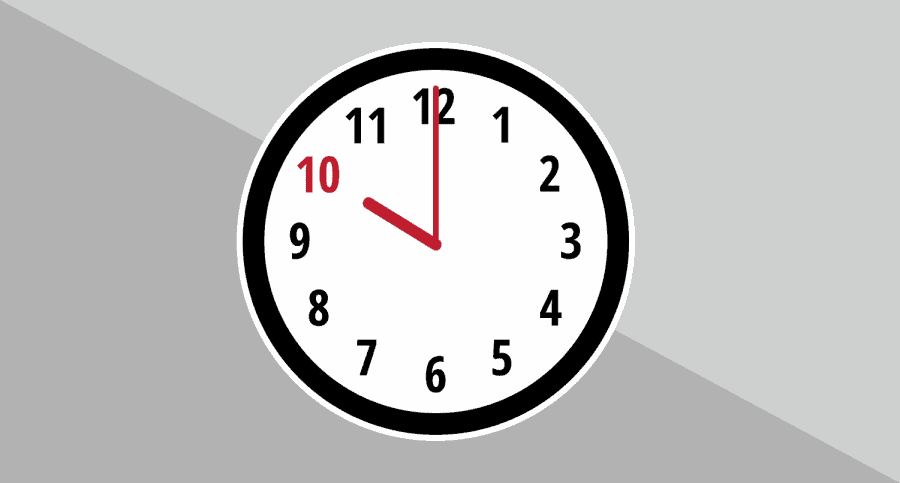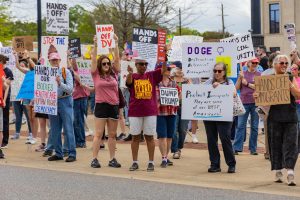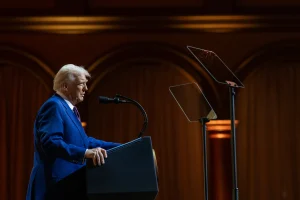Tuscaloosa reinforces juvenile curfew following several shootings
A curfew from 10 p.m. to 6 a.m. will be enforced for Tuscaloosa children under 18 years old.
June 21, 2019
Amid a series of violent crimes involving teenage victims and teenage suspects, the city of Tuscaloosa is reimplementing a curfew law aimed at reducing violence in the city.
Tuscaloosa has seen multiple instances of gun violence in recent weeks. Two 22-year-old men were shot at a Tuscaloosa apartment complex on June 9. On June 10, a 14-year-old boy and his 15-year-old brother were arrested in connection to the death of an 18-year-old woman, Elexis McCool, who was found shot to death in the back seat of an abandoned vehicle earlier this month.
The Tuscaloosa City Council passed a juvenile curfew in 2010 aimed at reducing crime, making this a law that has been on the books and enforced for almost a decade.
The curfew applies to minors, or anyone under the age of 18. Minors are prohibited from being in public places during nighttime hours, which are from 10 p.m. to 6 a.m. from Sunday through Thursday and from 11 p.m. to 6 a.m. on Friday and Saturday.
There are exceptions to the curfew that allow minors to be out after hours, such as minors who are:
- accompanied by a parent or custodian
- on a legal errand directed by the minor’s parent or custodian
- in a motor vehicle engaged in interstate travel
- going to or from lawful employment within an hour of beginning and an hour of ending work
- involved in an emergency
- standing on a sidewalk or right of way next to the minor’s home
- married or otherwise emancipated from parental authority
- attending a legitimate work/study program
- enrolled in a legitimate college, university or vocational/technical school
- members of the armed services
- receiving health-care services
The ordinance states a $250 dollar fine could be issued if violated.
Tuscaloosa City Councilwoman Sonya McKinstry said the curfew is geared toward keeping children safe and to reinforce the responsibility that the parents and guardians of minors have in keeping them safe.
“I think that we will begin to enforce or rather search harder for violators,” McKinstry said. “For example, if a minor is at a business without their guardian, that business owner can receive a citation which should help us further toughen the curfew. I still don’t like that a minor within the curfew age can be in the care of an 18-year-old.”
McKinstry has been involved in anti-violence campaigns in Tuscaloosa in recent years. Last year, she spearheaded the 100 Days of Nonviolence Campaign aimed at decreasing violent crime in the community. She said she does plan to pursue a similar campaign soon but in a smaller capacity.
“I will be discussing a period of nonviolence,” McKinstry said. “However, it will decrease the time frame. I think we should go to 2 weeks, then three weeks, etc.”
According to several studies, however, curfews are ineffective in lowering crime.
The Campbell Collaboration, a nonprofit organization that promotes evidence-based policy and decision making through the production of systematic reviews on the effects of social interventions, conducted an analysis of 12 different studies on curfew laws. The analysis found that curfews did not result in a demonstrable drop in juvenile crime or a reduction in the rate of juvenile crime victims.
In an article for The National Center for Youth Law, authors Angie Schwartz and Lucy Wang found that previous curfews implemented in other cities during the early 1990s had no effect on the level of juvenile crime.
The authors found that San Jose, California, saw no effect on youth crime after implementing a curfew law. At the same time San Jose implemented a curfew, San Francisco saw a decrease in crime after abolishing its curfew law.
A criticism of curfew laws is that crimes that involve juveniles peak during the hours of the late afternoon, rather than the nighttime hours that most youth curfew laws are imposed during.
Tuscaloosa Mayor Walt Maddox said he, along with Tuscaloosa Police Chief Steve Anderson, agrees that the curfew is just one of the many steps to be taken in their effort to curtail violence in Tuscaloosa.
“The safety of our youth in Tuscaloosa is one of my top priorities, and enforcing the curfew is just one of many tools that the Tuscaloosa Police Department has to help maintain the safety of our community,” Maddox said. “Both myself and Chief Anderson agree that we as a city must use the tools at our disposal to ensure the safety of our youth and community as a whole.”
The full ordinance can be read online.





















